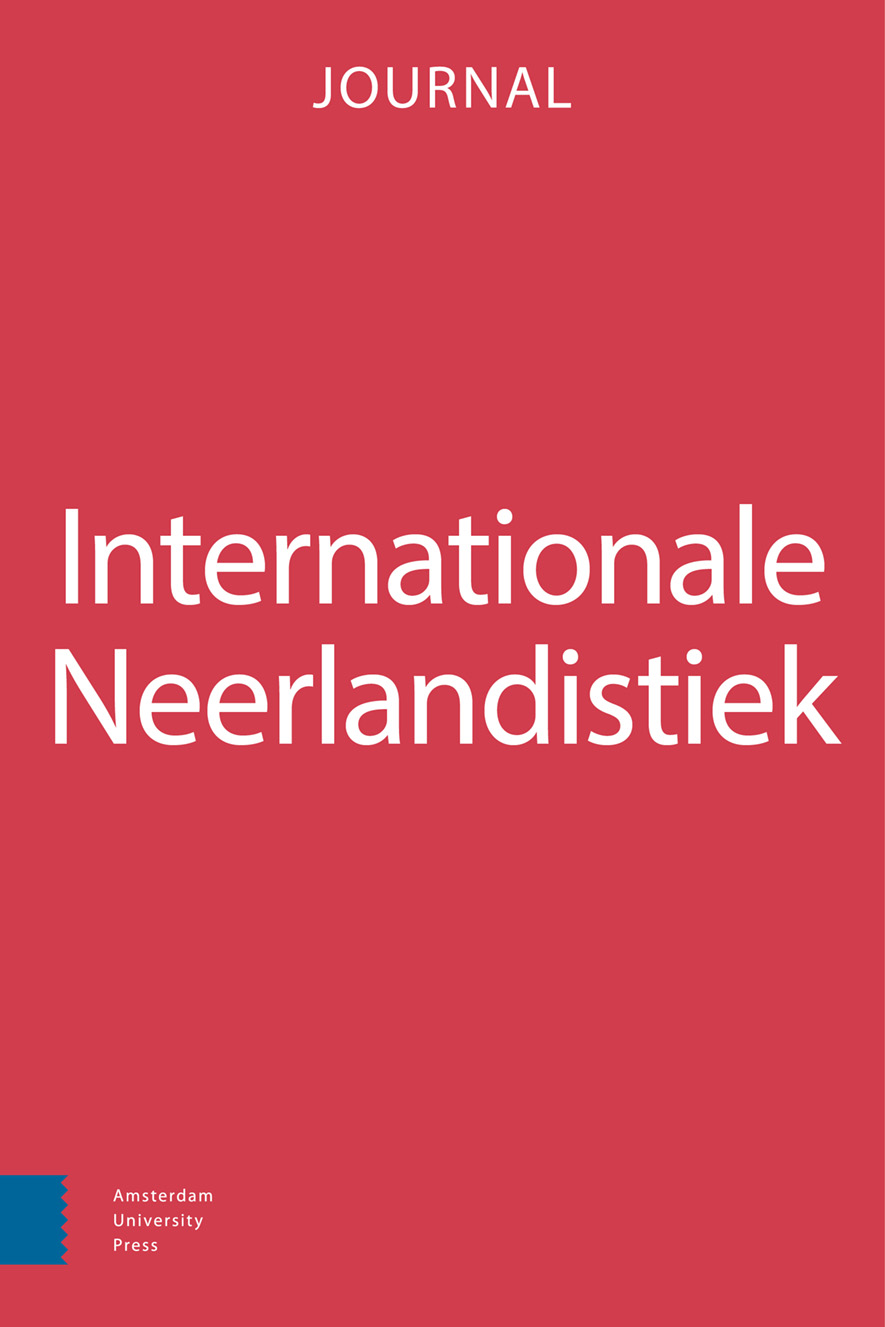-
oa Bernlef en De Coninck
- Amsterdam University Press
- Source: Internationale Neerlandistiek, Volume 48, Issue 1, Feb 2010, p. 5 - 15
- Previous Article
- Table of Contents
- Next Article
Abstract
While the word ‘house’ was frequently used by the poets of the nineteen fifties, it was much less often used in the works of the poets of the next generation. However, it does not mean that this, very real, object plays no role in their poetry which was programmatically connected with reality. To illustrate this role, in this article there are two poems discussed (‘Je truitjes...’ by Herman de Coninck and ‘Juffrouw Van Leeuwen’ by Bernlef) where the word ‘house’ does not appear. Different aspects of the house understood as space are associated with the poetics of the Zestigers. In the analyses there is attention paid to the use of concepts. Both metaphoric and metonymic language use in cognitive linguistics is related to the embodied mind thesis – a belief that each thought is grounded in the bodily experience. The concept of ‘a poem’ in the analyses is associated with the concept of ‘a house.’ It is furthermore proved that carnality is also for the Zestigers the most important source of poetry. While the Vijftigers used the word ‘house’ metaphorically to show the connection between this subject and reality, in the neo-realistic poetry of the Zestigers the concept of ‘a house’ is referred to through the metonymic use of language.


